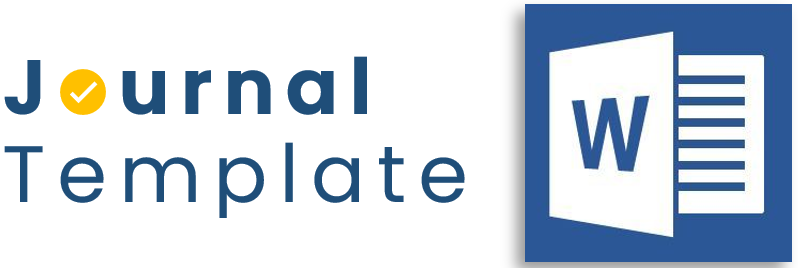OPTIMALISASI SUBSIDI PEMERINTAH DALAM MENINGKATKAN KEADILAN AKSES LAYANAN KESEHATAN BAGI MASYARAKAT KURANG MAMPU: TINJAUAN ATAS PROGRAM BPJS KESEHATAN 2025
Keywords:
BPJS Kesehatan, government subsidies, implementation barriers, health access equity, PBI, policy optimisation, public healthAbstract
The government subsidy programme in BPJS Kesehatan in 2025 has a strategic role in improving equitable access to health services for the poor in Indonesia. Through the Contribution Assistance Recipient (PBI) scheme, the government is trying to remove financial barriers that have been one of the main obstacles for vulnerable groups in accessing health services. However, the effectiveness of these subsidies still faces significant obstacles, such as low accuracy of beneficiary data, administrative complexity, budget constraints, health infrastructure disparities, low public health literacy, cultural barriers, weak inter-agency coordination, and limitations in information technology for data management. These obstacles not only reduce the accuracy of subsidy distribution but also affect the quality of services received by participants. Evaluations indicate that optimising subsidies cannot rely solely on expanding coverage but requires systemic reforms encompassing improved governance, strengthened infrastructure, modernised information systems, and community empowerment through comprehensive education. Adaptive policy approaches, rigorous oversight, and collaboration among stakeholders are key to delivering effective, sustainable, and targeted subsidies. With these strategic steps, it is hoped that the government's goal of achieving social justice in the health sector can be achieved, while ensuring the sustainability of BPJS Kesehatan as one of the pillars of national health insurance.
Downloads
References
Adi, W., & Hartono, D. (2024). Health Disparities and Equity in Indonesia’s National Health Insurance Program. Journal of Health Equity Studies.
Anggraeni, R. (2020). Does the health insurance governance system support the effectiveness of BPJS in Makassar? Kesmas: National Public Health Journal. https://doi.org/10.21109/kesmas.v15i3.3166
Asante, A. (2023). The Benefits and Burden of Health Financing in Indonesia. The Lancet Global Health. https://doi.org/10.1016/S2214-109X(23)00064-5
Banerjee, A., Finkelstein, A., Hanna, R., Olken, B. A., Ornaghi, A., & Sumarto, S. (2021). The Challenges of Universal Health Insurance in Developing Countries: Experimental Evidence from Indonesia’s National Health Insurance. American Economic Review, 111(9), 3035–3063. https://doi.org/10.1257/aer.20200523
Berdame, N. R., Sondakh, J., & Gosal, V. Y. (2024). Kebijakan Pemerintah dalam Pelayanan Kesehatan terhadap Masyarakat yang Kurang Mampu Menurut Undang-Undang Nomor 17 Tahun 2023 tentang Kesehatan. Lex Privatum, 13(5).
Bolderston, A. (2008). Writing an Effective Literature Review. Journal of Medical Imaging and Radiation Sciences, 71–76.
Darmawan, F., & Lestari, P. (2023). Financial Sustainability and Subsidy Management in BPJS Kesehatan. Health Finance Review.
Eliyah, E., & Aslan, A. (2025). STAKE’S EVALUATION MODEL: METODE PENELITIAN. Prosiding Seminar Nasional Indonesia, 3(2), Article 2.
Government of Indonesia. (2022). Instruksi Presiden Nomor 1 Tahun 2022 tentang Optimalisasi Pelaksanaan Program Jaminan Kesehatan Nasional.
Hidayat, R., & Bachtiar, Y. (2024). BPJS Health Inpatient Cost Management: A Literature Review. Health Policy and Management Review.
Indrawati, A. & [Additional co-authors unknown]. (2024). Mortality Risk Factors among COVID-19 Patients Using BPJS Health Records. Public Health Reports Indonesia.
Iskandar, M., & Fajar, L. (2023). Evaluating BPJS Kesehatan’s Impact on Healthcare Costs for the Poor. Health Economics Journal.
Ministry of Agrarian Affairs and Spatial Planning/National Land Agency (Indonesia). (2021). Regulation of Electronic Land Certificates and Its Implementation.
Ministry of Health Indonesia. (2024). Blueprint Global Partnership Strategy.
Nego, I. G., Yustedjo, D. O., Parlindungan, H., & Mahadewi, E. P. (2025). Insurance Utilities in Indonesia: A Study for Future Opportunities. International Journal of Health and Pharmaceutical, 5(2), 284–291. https://doi.org/10.51601/ijhp.v5i2.370
Nugroho, A., & Puspitasari, D. (2022). BPJS Health Insurance and Health Service Utilization: A Microdata Analysis. Journal of Indonesian Public Health.
Nurlayla, S. & [Additional co-authors unknown]. (2024). Service Quality and Price Impacts on BPJS Patient Satisfaction at Adam Malik Hospital. Indonesian Journal of Hospital Management.
Prasetya, I. P., & Kusuma, H. (2024). Technological Innovations Supporting BPJS Kesehatan Implementation. Journal of Health Informatics Indonesia.
Pratiwi, A. B. (2021). Is Indonesia achieving universal health coverage? BMJ Open. https://doi.org/10.1136/bmjopen-2021-050565
Probandari, A. (2025). Health insurance coverage, healthcare use, and financial protection among people with disabilities in Indonesia: Evaluation of JKN program. International Journal for Equity in Health, 24(1), 1–15. https://doi.org/10.1186/s12939-025-01822-x
Putri, N. M., & Rahman, Z. (2025). The Role of Government Policies in Enhancing BPJS Healthcare Services. Journal of Public Administration.
Rahayu, S., & Santoso, H. (2024). Accessibility of Healthcare under BPJS Kesehatan Program: A Rural Perspective. Journal of Rural Health Policy.
Rizzky, [First Name not provided]. (2024). Evaluasi JKN sebagai Landasan BPJS Kesehatan tahun 2025.
Santoso, B., & Lazuardi, E. (2024). Socioeconomic Barriers to BPJS Health Utilization. Journal of Social Health Research.
Sari, D., & Hadi, Y. (2022). Quality of Care and Patient Outcomes in BPJS Health Services. Journal of Clinical Healthcare Indonesia.
Sinaga, E. S. (2021). Evaluasi Implementasi Program Jaminan Kesehatan Nasional di Provinsi DKI Jakarta. Jurnal Kesehatan Dan Kebijakan Indonesia.
Siregar, A., & Nurhadi, D. (2023). Deficit Management Strategies for BPJS Kesehatan. Journal of Indonesian Health Policy, 14(1).
SMERU Research Institute. (2023). Political Economy Analysis of Health Financing Reforms in Indonesia.
Suhaina, S., Alam, S., & Rahayu, A. (2021). Implementasi Kebijakan Program BPJS Kesehatan pada Jaminan Kesehatan Nasional di Indonesia. Jurnal Ilmu Kedokteran Dan Kesehatan Indonesia.
The PRAKARSA. (2020). Defisit Jaminan Kesehatan Nasional (JKN): Mengapa dan Bagaimana Mengatasinya?
Utami, S., & Harjo, B. (2023). Impact of Subsidy Optimization on Health Outcomes in BPJS Beneficiaries. Health Economics and Policy Journal.
Wahyudi, S., & Nurhadi, T. (2023). Effectiveness of BPJS Kesehatan Public Awareness Campaigns. Journal of Health Communication.
Wibowo, A., & Sari, R. (2023). Challenges in BPJS Health Referral System: Impact on Service Equity. Healthcare Management Journal Indonesia.
World Bank. (2024). National Health Insurance (JKN) Reforms and Results Program.
Yusriadi. (2019). Public Health Services: A Case Study on BPJS in Indonesia. Jurnal Administrasi Publik, 9(2), 85–91. https://doi.org/10.31289/jap.v9i2.2279











